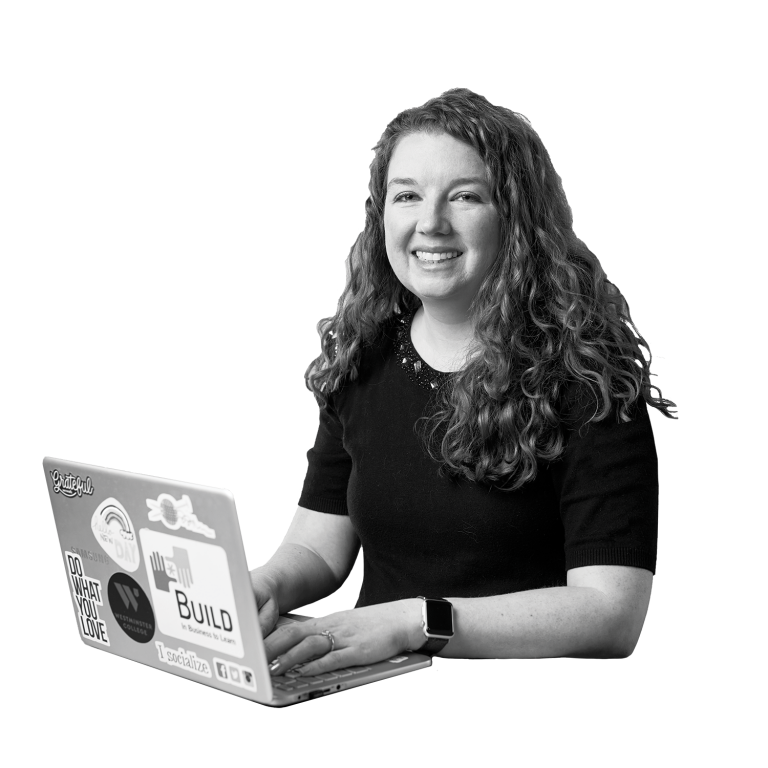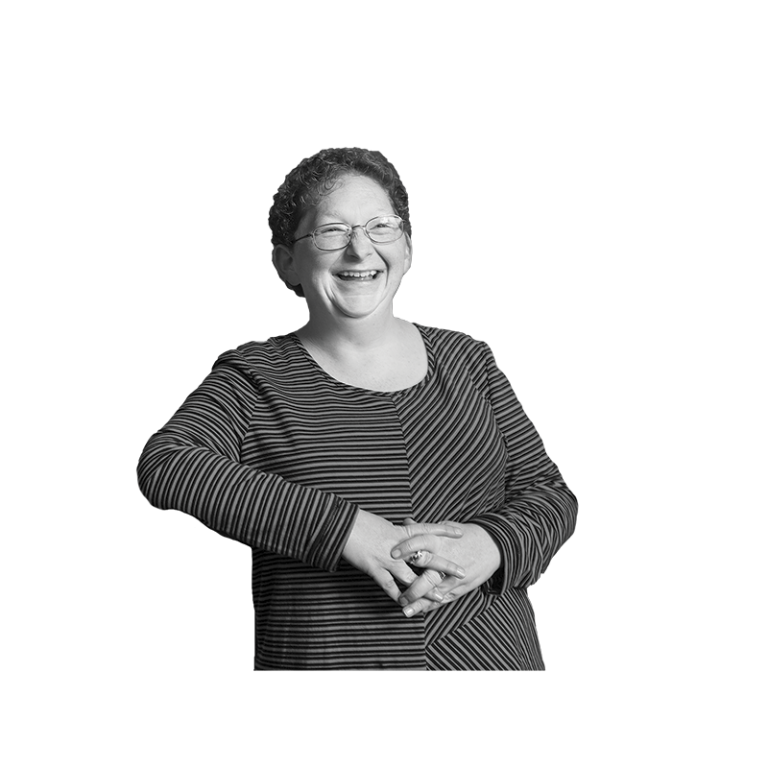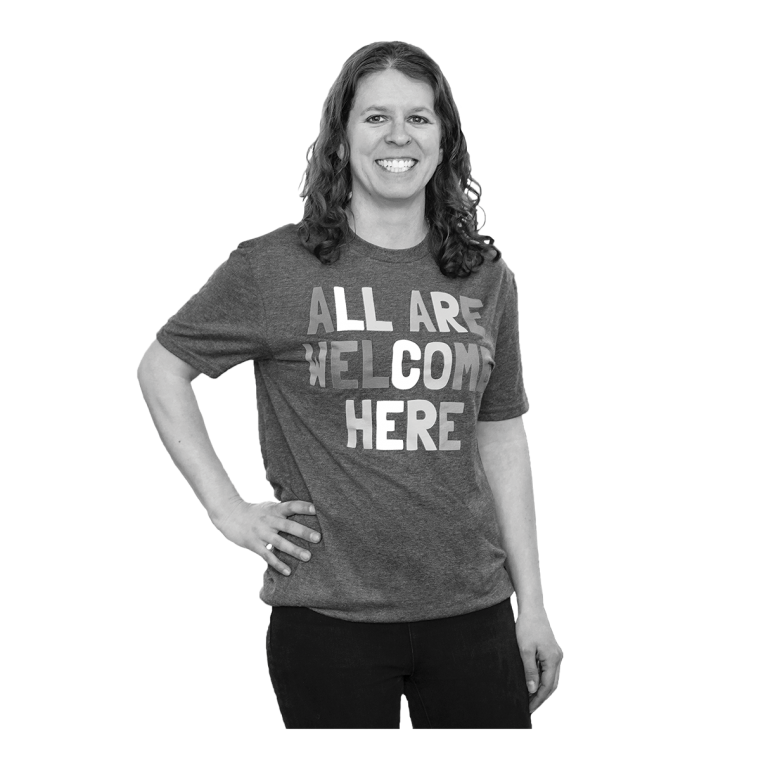
Career Crossroads

Making a major career change is more common than you think
by Ashley Atwood (’07)
A liberal arts education encourages students to learn for life. But deep curiosity and broad interests can drive career shifts. “Humans have so much capacity for change and growth over time,” says President Beth Dobkin. “Education should serve to meet our needs for personal growth and career development. We often live so long now; we have more than one life to design. Education needs to continue to inspire and help us reinvent ourselves.”
Research shows that people are increasingly designing more than one life in service of personal growth, as well as in response to a changing marketplace. Frequent job changes are no longer seen as negative. And liberal arts skills strengthen an individual’s ability to adapt to new fields and work environments, especially at the tech companies driving so much rapid change.
A recent CNBC article examined why tech companies choose to invest in employees with liberal arts backgrounds. These individuals, they say, are valuable because of their enduring human-centered skills, such as a strong work ethic, self-motivation, and problem-solving. Of course, some career changes are easier to make than others. We talked to three alums who grappled with these questions—and more—when they found themselves at career crossroads.

From Law to Nonprofit Administration
Pepper Hayes (’05) had a feeling she was in the wrong place during law school. “Everyone in law school was super competitive and not very collaborative,” she says.
Nevertheless, she pushed through her studies, believing that becoming a lawyer was the best way to fulfill her mission to help create a more equitable society. But she was dismayed to discover that life as a lawyer was even more isolating than it had been as a law student. “I never enjoyed the work—even when I had the opportunity to do pro bono assignments I thought I would be interested in, even when fighting for something I cared about,” she says. “I was in the wrong career.”
That was a heavy realization. But it wasn’t easy to change careers after pouring years and thousands of dollars into a law degree, so Pepper attempted to make it work. “I tried all kinds of law,” she says. “I even started my own practice and realized very quickly that it had not been where I was working or my law school: it was me.” Five years after graduation, she gave in.
Pepper partnered with a career counselor who suggested a role in nonprofit administration. “I have always been drawn to nonprofits, but it never occurred to me I would enjoy working on the administrative side,” Pepper says. “Turns out, it is a perfect fit.”
With a new plan in place, she began searching. Despite her experience, she quickly learned she was back at the bottom. “I got a lot of doors slammed in my face,” she remembers. Out of what she calls “sheer desperation,” she applied for an unpaid development internship at BUILD of Greater Boston, a nonprofit that teaches entrepreneurship skills to youth in under-resourced communities. “The mission sounded so exciting and so me.”
She got the position but had to keep a law job to pay the bills. “A lot of people thought I was crazy,” she says, but she found working 10–15 hours at the internship, even on top of a full-time job, energizing.
Of course, that didn’t mean the experience was easy. Pepper recalls the difficulty of letting go of the prestige of being a lawyer—and of reporting to someone younger than she. Now Pepper understands that her career mismatch was not failure. And she is proud of the risk she took. After a year and a half as an intern, “I moved up the ranks quickly,” she says. In 2018, she was promoted to director of development operations at BUILD’s national headquarters. Pepper says, “Starting over was absolutely worth it.”

Graphic Artist Turned Speech Therapist
Tiffany Barber (’99) clearly remembers the summer day in 2006 when her life changed. With the economy showing signs of a recession, and after recognizing that her graphic-artist salary wasn’t enough to live on, she decided to look at graduate school. “I was purposefully looking for something different,” she says.
Hearkening back to her time at Westminster, where she discovered a passion for speech and writing, Tiffany began querying programs related to public speaking and speech writing. Just minutes into her online search, something caught her eye. “An advertisement for a degree in speech-language pathology came on my screen,” she says. It shook her. “Why didn’t I think of this before?” she remembers thinking. As a child, Tiffany had greatly benefited from speech therapy; she had also previously worked with special-needs children and loved the experience.
This felt right. Her career path had shifted in minutes, and she was surprised by how seamlessly it started coming together. “I felt like I was being led, like somebody was saying, ‘This is what you need to be doing,’” she says.
Now in her tenth year as a speech-language pathologist, she marvels at how her journey unfolded, but does admit to daunting moments. “Leaving my job to start a graduate program was scary,” she says. “I often asked myself if it was going to be worth it—or if I was making the biggest mistake of my life.” Though she was earning more, she had taken on debt, and it took time to adjust. However, she says it was worth it to find her calling: “I would do it again in a heartbeat.”
To anyone else facing what I was facing, or just wanting a change, I say, take a leap because you never know if you never try, Tiffany says.

Accounting to Teaching
In January 2018, Kathleen Moran (’02, MBA ’04) was recovering from a particularly tough year-end accounting process. As division controller for a publicly traded company, she was used to the highs and lows of the job, but this year was different. Something had shifted.
“I had always struggled with work-life balance and the feeling that accounting did not feel that rewarding to me, especially after my kids were born,” she admits. “I worked so many nights, weekends, and holidays.” Kathleen’s kids were seven, four, and three at the time, and she ached to be with them more.
When a teaching-assistant position opened at her kids’ school, she decided to apply—and things moved fast. By March, she had traded financial reports and boardrooms for worksheets and classrooms. “I was excited and ready to make the move,” she remembers. Kathleen now works on a team that rotates around the elementary school, supporting instructors in various capacities. “I am thrilled to go to work each day,” she says. “I enjoy seeing all the kids and interacting with them.”
Kathleen acknowledges that there were tradeoffs and fears that came with her decision to switch careers. “I definitely took a step back, primarily in pay, she says.
When she felt anxiety during the transition, Kathleen calmed herself by recalling the reasons she had made the change: work-life balance, time with her family, greater fulfillment. “I am still challenged at work every day, but it is a more rewarding challenge,” she says.
As a former accountant, Kathleen does note that her choice was financially strategic: it gives her the opportunity to work with children without having to go back to school to obtain a teaching license. And although she plans to stay in education while her kids are in school—“It’s so helpful to be on their schedule,” she says—she knows that family situations and personal goals are always evolving.
“I felt like trying something new and rewarding was what I wanted to do, as opposed to taking a step back in accounting,” she says. “I have kept my doors open. I still have an MBA and a CPA license to fall back on, and I plan to keep my license active so I can keep all options on the table.”
For now, she’s going to intentionally enjoy this stage and all its benefits. “I know that when the day is over, I can put everything behind me and enjoy time with my family.”
Professional Pivots
In the fall of 2019, we posted a question on the Westminster Alumni Facebook page asking alums to comment if they had made a major career shift. The post quickly generated more than 80 comments—indicating a high level of flexibility and fearlessness among Westminster grads.
"I seem to make a career change every two to five years, and I’m 45! I recently left a six-figure gig to pursue my PhD. As a result, I started my own business […] that now affords me the flexibility to work on my doctorate and travel the world.” –Carlos Linares (’01, MBA ’05)
I left a desk job to be a pilot when I was 38. Best decision EVER!” –Donna Miller (’83)
"Corporate finance to stay-at-home dad.”–Kevin Fletcher (’13)
"At age 40 I left federal service with the USDA Forest Service. I shifted into the world of nonprofit management as an executive director and got my Westminster MBA to help me better understand the world of finance, business, and the private sector. […] I’m 60 now and have no regrets for taking the time and finding the resources needed for my degree—it was life-altering!” –David Spann (MBA ’99)
"Pivoted from HR and recruiting to communications thanks to [Westminster’s] Master of Professional Communication program.” –Maryam Hosseini (MPC ’14)
“Education to retail to aeronautical manufacturing program management. Westminster education enabled me to adapt.” –John McNaughton (’68)
About the Westminster Review
The Westminster Review is Westminster University’s bi-annual alumni magazine that is distributed to alumni and community members. Each issue aims to keep alumni updated on campus current events and highlights the accomplishments of current students, professors, and Westminster alum.
GET THE REVIEW IN PRINT Share Your Story Idea READ MORE WESTMINSTER STORIES